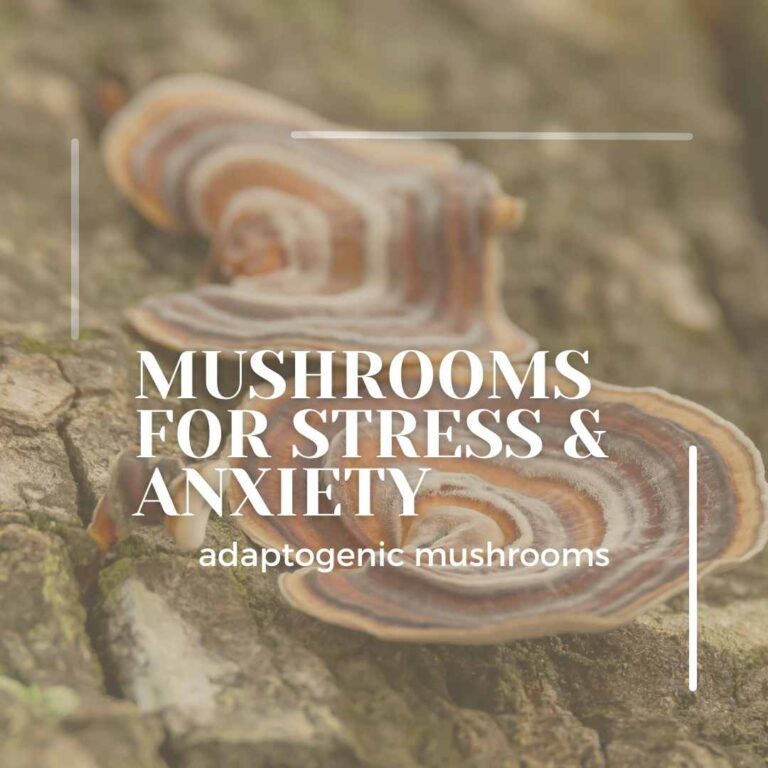10 Mindset Habits That Are Life Changing
Every since I started golfing, I quickly figured out that if I wanted to strike the ball well, I needed to get out of my head. I often forget how powerful our mind is and how important it is to use it to our advantage. You too?
People always say that the game of golf is a mind game. In other words, your mind can make a mess of the game if you let it. Your mindset and positive visualization can help you become the best golfer you can be. Life is the same way. Controlling and managing your thought process can change your game and your entire life.
We have all heard the saying- Mind Over Matter . What about Mind Games? It is easy to forget how powerful our brain really is. If we can control and train our thoughts, who know what we can accomplish.
Did you know that a few vital daily habits you can incorporate into your everyday life can be life-changing? Studies suggest that the most successful and happy people practice the power of positive thinking.
I know that it sounds so cliche, but what it comes down to is this: training your mind. Why? Because our thought patterns become our reality. Our subconscious mind is way more powerful than we realize.

Your Mind Can Be Your Superpower
Think of your mind as your superpower. If you can train your brain to work in your favor- you are golden! If you want to be the best person you can be, it takes work, including brain work.
Brain research shows that every conscious thought is recorded in our cerebral cortex (internal hard drive). When we have the same thought repeatedly, the line of the original thought is deepened, forming and embedding a pattern of thinking. When we tie emotion to this thought, the memory trace grows exponentially more potent.
So every time we have a random thought throughout our day, we retain the ones we often think. Ideas such as “I hate trying on these jeans because I feel fat every time I wear them” or “I can’t believe I keep losing my keys in my own house, I think I am losing it! “These thoughts come and go, and we don’t think much about them… but we should!
When we have the same thought repeatedly, it’s sketched into our cerebral cortex. With each repetition, the trace goes deeper and deeper, forming a pattern of thinking. This thought could be positive or negative. It is our choice.
Since most of us forget our random repetitive thoughts that are not tied to an emotion, we retain the ones we often think have a feeling connected to them. For example, if we repeatedly believe that we are not good enough at something, that thought often becomes engrained.
Renew Your Brain With Positive Daily Habits
So, friends, it is time to positively renew your brain with daily habits that will rock your world in a good way. Embrace change, it’s good for all of us.
You can rewire some parts of your brain to focus more on the positive things in your life, remain composed during a crisis, or improve your relationships and even your golf game. Ask any professional athlete; they all work on training their brain to visualize success and positive outcomes. The key is to block negative thinking and replace it with positive affirmations.
The first step is to recognize the negative thoughts as they arise
Brain Renewal Is Nothing New
Brain science is fascinating, but it is interesting to note that understanding the mind is nothing new. The bible speaks of ways to renew our minds and our thought process, so it goes way back.
Do not conform to the pattern of this world, but be transformed by the renewing of your mind. Then you will be able to test and approve what God’s will is- his good, pleasing and perfect will. -Romans 12:2
Dr. Gupta is very well know as an expert on brain science today. He says, “It’s quite possible that combinations of neurochemicals can stimulate what we think of as consciousness and thought awareness.” (Neurochemicals are small organic molecules that participate in neural activity.) As a neurosurgeon, Dr. Gupta spent years training his hands and mind to say calm under pressure. In his field of work, getting nervous during a procedure can lead to many disasters.
He explains that by changing your thoughts, you can adjust your heart rate, blood pressure, and immune system. That said, if you want to be happier, more productive, and positive, you must train your brain.
How Do You Change Your Perspective?
Once you recognize what you spend your time thinking about, you need to choose whether you truly want to change. Many people have a hard time letting go of things that made them angry in the past and will perseverate on these misfortunes and negative feelings.
So how do you change your perspective on things? You train your brain to think differently. I know, it’s not easy but it is more than possible.

The Good News About Your Brain
An important note about the brain is that we rewire it every time we learn something new or do something differently. Neurons that are used repeatedly grow more robust, and the more they fire, the more they send out new branches looking for unique and valuable connections.
The principle of neuroplasticity offers hope. Just as our brains have been wired for negative and unproductive behaviors, we can rewire them to cultivate and strengthen positive habits and behaviors.
A great way to rewire your brain so you become happier, successful, positive, and productive is to incorporate the following daily habits.
10 Powerful Habits That Will Change Your Life
1. Meditation
Studies published in Psychiatry Research show that you only need to meditate for a minimum of 2 minutes a day to start harnessing the benefits, including permanently rewiring your brain.
Focus your attention on your breathing. Close your eyes and listen to your body’s breath. Too much attention to upsetting thoughts may cause anxiety, guilt, and unhappiness. Get in the habit of shifting your awareness to your breath whenever you find yourself dwelling on stressful situations.
2. Mindfulness
Mindfulness seems to help to control emotion and negative thoughts by limiting compulsive negative thinking. Not only does mindfulness cultivate compassion for others, but it also develops empathy for ourselves, creating a healthier mindset and a happier brain and feeling down? Are you hard on yourself or others? Practice mindfulness!
There are 5 simple ways to create a mindful home- in order to create a positive and inviting environment. Read more here.
3. Positive Self Talk
When you have a random thought, please make a note of it. Was that a positive or negative thought? How did it make you feel? If the mindset causes negative emotions, then quickly move to a different perspective that is positive and hopeful. Stop all negative affirmations in their tracks!
These are unwanted thoughts that will only take you down a dark rabbit hole. For instance, if you have a negative belief when you are golfing. “What is wrong with my swing, I can’t hit the ball”. These types of negative thoughts will hinder you from ever-improving your game. I know this to be true.
Give yourself some positive self-talk. Stop your negative thoughts and negative self-talk. Set yourself up for a positive
Negativity can be such an ingrained habit – it’s imperative to catch yourself in the act. How you are feeling about an event is a good indicator of where your thoughts are. Big negative feelings follow big negative thoughts.
4. Visualization
Through visualization, you can turn an abstract hope into a picture that not only inspires you but also guides you. According to a study called “The Future of Memory: Remembering, Imagining and the Brain,” the human brain can’t always distinguish between a memory and a vision of the future.
To rewire your brain for the long term, you must practice visualization for at least six weeks for just five to 10 minutes a day.
If you’re busy during the day, try doing the practice before going to bed or first thing in the morning. Before you start the visualization process, ask yourself the questions below:
· What is my strength?
· Who can I help?
· What is my passion?
· What is my higher calling?
5. Practice Gratitude
When you take time to count your blessings and be thankful for what you have, your subconscious mind takes note and locks that into your memory bank.
The more often you take time to be grateful, the more ingrained that positive thought process becomes a healthy habit. There are so many scientific reasons to practice being grateful.
Research shows that practicing gratitude can decrease insomnia, increase empathy, reduce aches and pains, boost self-esteem, and bolster mental toughness.
So how do you begin to practice gratitude? Start small.
For example, I am grateful that it is raining today – it allows me time to get stuff done at home.” I am thankful the sun is shining today. I am grateful for this warm cup of coffee and that hot shower this morning.
It’s really about making a habit of finding and recognizing things you can be thankful for in some small way. And yes, it’s good to be grateful for the big stuff, too.
For more ideas on how to practice gratefulness read more here.
6. Write and Read
Reading and writing is good for your mind and when you do this, it often inspires us to think differently.
7. Set Goals
What are my goals? Visual yourself succeeded in whatever your goal is. Start with small goals so it is easier to achieve them at first. This is great practice because as your goals become bigger, your mind is already conditioned to succeed.
8. Do Something Nice For Others
When we help others, it reinforces positive feelings and thoughts into our mind and heart. The more we can fill ourselves up with good thoughts and feelings, the more we will feel about ourselves .
9. Surround Yourself In Positive Social Circles
Negativity breeds negativity. Hang out with successful, happy, grateful friends and family members.
10. Challenge Yourself
Get involved with activities that you enjoy but are also challenging at the same time. Perhaps this includes playing an instrument, a new sport, working out, or practicing a skill such as writing. Whatever the activity is, get in the zone. If you enjoy the activity itself and feel great afterward, try to practice that activity daily — or at least as often as possible during the week. When you do this, you become so immersed in the present moment that the voice of your inner critic is quiet.







